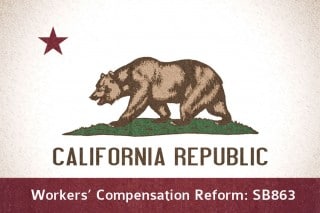 Along with significant other reforms of the workers’ compensation in California, the September 2012 enactment of SB 863 brought significant changes to the practice of factoring work comp claims. It is essential for work comp providers and factors alike to understand and comply with three new legal requirements.
Along with significant other reforms of the workers’ compensation in California, the September 2012 enactment of SB 863 brought significant changes to the practice of factoring work comp claims. It is essential for work comp providers and factors alike to understand and comply with three new legal requirements.
The popularity of work comp (as well as private pay insurance) factoring has soared in recent years, as health care providers utilize factoring agreements to accelerate cash flow. Although federal law prohibits factoring of Medicare and Medicaid claims, the laws of most (but not all) states permit factoring in the context of private insurance or workers compensation claims. In a typical healthcare factoring arrangement, the factor pays the healthcare provider a discounted price in exchange for assignment of the accounts receivable associated with particular claims. The factor profits when it collects payment from a third-party payor.
In passing SB 863, the California Legislature reflected concerns that factoring increases the risk of fraud and abuse. To address these concerns, California Labor Code Section 4903.8 adds three new requirements for any assignment of a lien. First, assuming that the original person or entity entitled to payment for services rendered remains in business, the law requires that the order or award for payment of a lien must be payable to that person or entity. The healthcare provider is free to assign the lien to a third party, but the payor must make payment payable to the original person or entity. It is up to the factor to obtain payment from the seller after payment is issued.
Second, a copy of the assignment of the lien (whether as an assignment of all right, title, and interest in the accounts receivable or as an assignment for collection) must be filed and served. For liens filed prior to January 1, 2013, the copy of the assignment is required to be filed at the earlier of the filing of a declaration of readiness, the lien hearing, or January 1, 2014. For liens filed on or after January 1, 2013, a copy of the assignment is required at the time of lien filing (if assignment has already occurred) or thereafter, within 20 days of assignment.
Third, the assignment of the lien must be accompanied at the time of a filing by a declaration from a person competent to testify that (1) the services or products described in the bill for services or products were actually provided to the injured employee, and (2) the billing statement attached to the lien truly and accurately describes the services or products that were provided to the injured employee.
These requirements do not foreclose factoring of work comp claims, but instead impose procedural safeguards to ensure transparency, accountability, and integrity. For more information on structuring factoring arrangements in compliance with the law, please feel free to contact Nelson Hardiman.